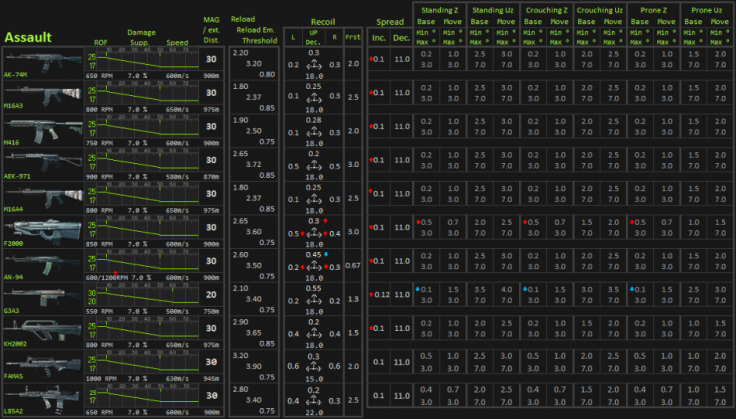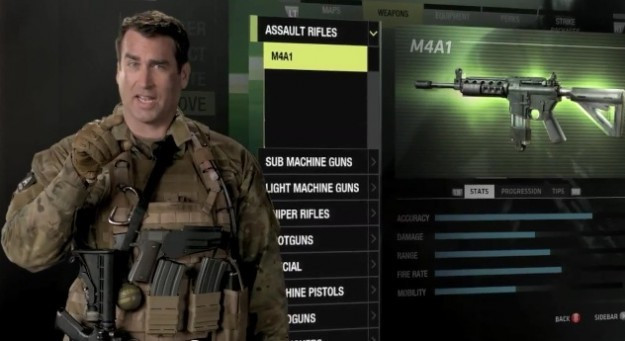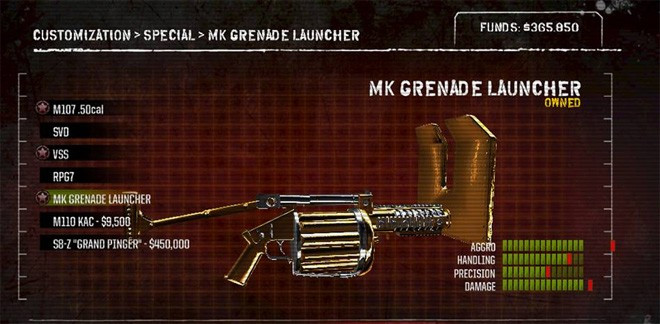Why Games Matter Blog - Breaking the Link Between Games and Guns
Breaking the Link Between Games and Guns - If we're going to become a less violent medium, we need to completely rethink how videogames work.

EA can refuse to pay for licensed weapons, Spec Ops: The Line can make points about violence, but until we completely revaluate the way videogames treat guns, I don't think the link between the game industry and mass shootings will be severed.
It doesn't matter if they're called the M4A1 or the Klobb, Guns in games are desirable objects. In the same way Mario's jump power-up nets you more points, having an assault rifle on you makes you better at so many games. I'm thinking, mainly, of online shooters like Call of Duty and Battlefield, where the bigger your gun's clip size - the more powerful and deadly it is - the more likely you are to win.
There are also plenty of single player games where the acquisition and retention of guns is fundamentally important. You feel naked without one; you feel like you're playing the game wrong. Plonk someone into Half-Life with just the crowbar and the first thing they want to do - the first thing the game wants them to do - is find a gun.

Your objective in games is to arm and defend yourself, and to remain armed and defended. It's not like you can put the gun down - the game either won't allow it or is designed in a way that means you lose if you don't have a gun. You're encouraged, in fact, to get more guns, better guns, guns that can kill more people more easily. Guns are something you need in games, guns are something you want. They help your progress, they make things more exciting. Guns in games are a good thing.
That sets an ugly precedent. What we have is game after game after game where guns are valuable items. I struggle to think of a game where a gun has a detrimental effect on your progress or performance. There's the occasional stealth 'em up where shooting guards might raise an alarm, or some FPS games where firing wildly might injure civilians and fail the mission, but generally, guns are a facilitator; they're improving.
Fetish
It's reached a point where videogames don't just sell you the idea that owning a gun makes life easier, they encourage a kind of worship of guns. The most powerful killing machine in a game is generally the hardest to get and most sought after object. It's a grail. And once you have a gun that you like, games like Battlefield and Borderlands let you paint it, improve it, stick bits on that make it look and kill better.
Not only are guns in games helpful, they're trendy. They've become as fetish properties or collector's items. Call of Duty forums are stacked with players comparing which combination of gun parts works best for them; other games promote themselves with a range of guns, a range that invites you to find characteristics which suit you, to consider your gun as a lifestyle choice. In an idealistic world, players would choose the gun which was the least likely to cause someone else harm, but of course, they never do: The sheer concept of a shooting game belies it. The ownership of a powerful gun is necessary, attractive.

All this to say, I think games teach you to want guns. I'm not saying it's some insidious conspiracy on the behalf of developers, nor am I saying it's necessarily short-sightedness on their behalf. This is just the way games have always been, before computer games, even. In the way a full house is the most desirable hand in poker, or Mayfair is the best property on the Monopoly board, bigger and more deadly guns are the best play you can make in videogames, the difference being of course that a decks of cards isn't being used in the real world to kill schoolchildren.
This is what I mean by a fundamental revaluation. If your game's aesthetic runs on killing and firearms, then then old ludological laws shouldn't apply. Meat and potatoes game design dictates that they more you play, the harder you try, the better you get at the game, and in today's shooters, that translates to unlocking better guns and doing more killing. But that can't continue to stand. It's morally misshapen. Simply changing the name of the guns or pointing out that sometimes when you use them bad things happen isn't enough. In the face of videogame guns, the whole structure of ludology needs to be ripped out and rebuilt. The old tenants of skill and reward can't apply, because then you're just awarding violence with ways to do more violence. That's a terrible, terrible lesson to teach people and it has to be rewritten.
© Copyright IBTimes 2025. All rights reserved.






















